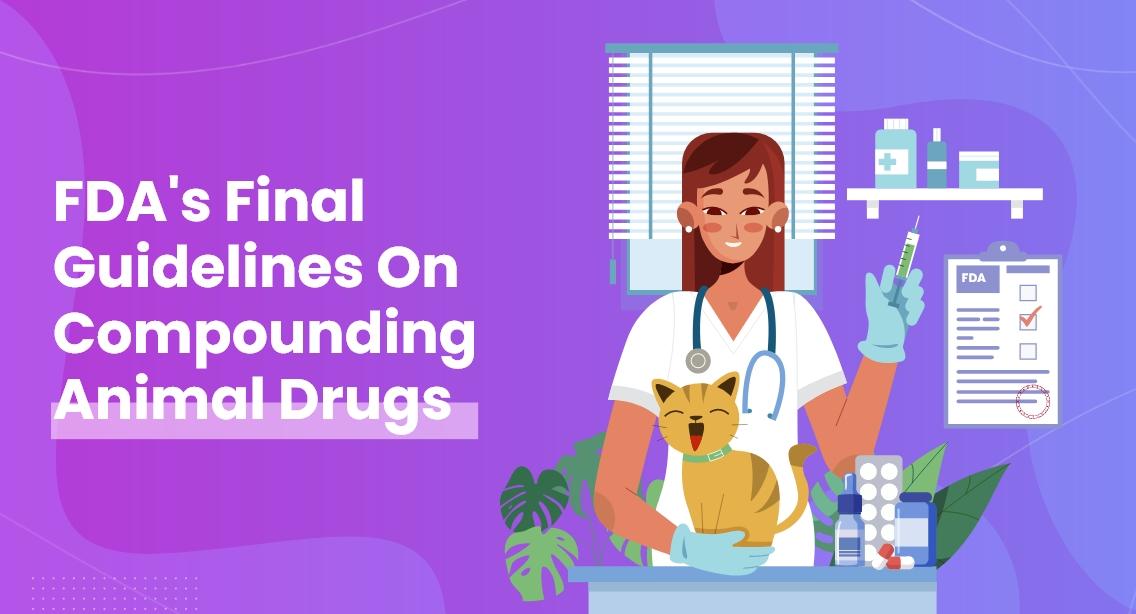FDA Issues Final Guidelines For Policy On Compounding Animal Drugs From Bulk Drug Substances
The Food and Drug Administration (FDA) extended the educational period for the new policy on using bulk drug ingredients for compounding animal medications.
The FDA outlined the conditions under which the policy will be exercised concerning violations of the Federal Food, Drug, and Cosmetic Act. It also complies with drug approval, labeling, and manufacturing when pharmacists and veterinarians compound drugs from bulk drug substances for animal patients.
According to a letter from Dr. Amber McCoig, a senior veterinary medical officer with the FDA Center for Veterinary Medicine, “The agency recognizes that some stakeholders may need additional time to review the recommendations described in the guidance or make suggested changes to their processes, as well as to submit nominations for bulk drug substances for compounding office stock.”
Compounding For Non–Food Animals (Patient-Specific)
According to the new FDA instructions, the fewest limits apply to medications created from bulk drug ingredients intended for particular non-food animal patients.
The restrictions include
- Compounding must be done by a veterinarian or pharmacist or under their direct supervision and in accordance with state legislation and FDA criteria for medication components.
- A patient-specific prescription must be given to a pharmacist before they may dispense such a medication.
- A veterinarian may provide such medication to a clinic patient or another vet working there.
- Copies of FDA-approved products may not be compounded unless a modification results in a clinically significant difference for the animal.
- A pharmacist must record the medical justification, while the veterinarian should note the clinical difference in the patient's medical file.
- The person creating the medication must decide and record the impossibility of using the FDA-approved or indexed medications if the medication made from bulk drug substances shares the same active component.
The FDA gave a few non-exhaustive examples of suitable medical justifications, such as the patient has an allergy to a certain chemical, the substance is hazardous to the animal's species, the animal would need a lot of pills, or splitting up a dose of the authorized product is impractical.
Compounding For Food-Producing Animals
Among other requirements, the bulk drug substance must be on one of two lists for a pharmacy or veterinarian to administer compounded medications made from bulk drug substances for office stock and non-food-producing animals.
The lists include:
- List of Bulk Drug Substances for Compounding Office Stock Drugs for Use in Nonfood-Producing Animals
- List of Nominated Bulk Drug Substances Currently Under Review
According to the September 9 updates via letter, the FDA aims to keep giving enforcement discretion before April 2023.
AVMA’s Effort
Based on suggestions from AVMA members and AVMA-affiliated organizations, the AVMA has submitted nominees for bulk medication substances to the FDA. The AVMA will keep gathering data and submitting nominations continuously.
AVMA Chief Advocacy Officer Dr. Kent McClure said, “Going forward, the AVMA will continue to work to ensure veterinarians have appropriate access to the medications needed to provide for the animals under their care,”
Earlier this year, Dr. Steven M. Solomon, director of the FDA Center for Veterinary Medicine, gave a briefing about the final guidance. “We are taking this step because we recognize the need for veterinarians to have access to compounded animal drugs that aren’t available as approved products, and that would make a clinical difference in patient care,” he said.
“We believe this policy strikes the right balance between maintaining access to drugs veterinarians need to treat diverse animal populations while ensuring human and animal health is protected from poorly-compounded products or ones that attempt to copy existing FDA-approved drugs,” Dr. Steven continued.







